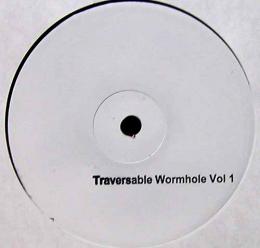
~ This week, as both a part II and a rejoinder to PC's piece on 'where he's at' with writing/reviews/online, regular RA scribe and now international man of mystery meats, the 'from-now-on'irregular sausage, Mr Terrence Fuller, replies... ~
Hey Peter:
Thanks for the chance to respond to your post about music reviewing. I'm the type of guy who works better when given something to react against, instead of given an open canvas of infinite possibility. I also tend to write a bit shorter than you, because I don't go in for all that flowery language. Hopefully, though, you'll appreciate the time I've spent thinking about this.
As someone who has been writing for RA for a (relatively) short time, but been reading the internet since…well…it began entering into suburban homes, I've been intrigued by the comment box mentality. I was recently listening to a radio show that had someone on that talked about "online disinhibition," which related some of the more heinous ways that people can act. Whatever, nothing new.
But, even in their less crazed forms, the kidz (z, because I still count myself as one of them, even as I edge closer and closer out of the age range) are unruly. And music criticism (a thing we must say that is VERY different than music journalism) is a playing field that has been supposedly leveled. (Everybody has a blog, etc. etc.) But what I think people don't seem to understand is that there is more music journalism than ever. The regurgitation of press releases, the posting of mp3s, the "bassline sounds like this," the "remix toughens up the drums" is all information. Some of it is phrased poorly. Some of it is flat-out wrong. But it's all journalism in one form or another, because it doesn't speak very much at all to whether it works better. Or why it works better.
That's of course the hard part. And that's where the kidz get unruly. Compare it to something they don't understand, and it's a knee-jerk reaction. Try to make a fanciful turn of phrase along the way, and you'll get the hordes out calling for your hide. How dare you advance an argument that I don't understand immediately? That is, if they're reading the review at all. As Peter rightly points out, it's mostly "rating, scan, comment, close window, post on twitter" with some steps being added and some steps being taken away—depending on the type of person you are.
In any case, to get to your specific points: Your first—that descriptive previews are thoroughly unnecessary is on-point. In writing my own reviews, I try to be careful as possible to use those descriptions as jumping-off points to describe how or what the person is doing. And why. (I'm not a mind-reader, of course, but it's part of the job…that doesn't pay.) Any time I read a review that simply tells you how it sounds, my eyes glaze over. There are very few internet-based writers that are going to delight your senses with a turn of phrase.
Your second is a bit hard to parse, but what I get is that you're frustrated by people reviewing the review. To that, I don't know what to tell you aside from "buck up, kid." But I'm not sure the ssg readers want to hear our self-help session. I don't want to blow smoke up RA's ass either. There is a bit of free-wheeling idea-driven stuff on there, but it's just as likely to offer up the same dance music mag clichés as anyone. Which I think is down to the wide variety of contributors that they have.
Getting off that point, though, I wanted to ask you a question: What do you think that artists think of journalists that don't seem to have gotten what they're going after? I don't mean the guys that have spent the time researching the work, and deciding it ain't up to snuff. But the people who completely miss that, say, Butane's new album is all about "evolution" and Darwin. (We can argue about how good it is later. I think we both know.) I imagine it's the same feeling that you're getting out of the commenters. This guy didn't even take the time to hear what I was trying to do/read what I was saying. Similarly, I also wonder how much artists care about fans that come up to them, have listened to the album three times and say they love it. And what about the ones who do that before the album has been released, because they've downloaded it instead of buying it? I think you're simply agonizing in the same way that an artist agonizes over his album. And, that's a good thing. It's something that perhaps artists should know about. We actually care too. We don't want you to suck!
To your third point: Fuck this. Anything that we can do to facilitate the idea that if music is good enough to be listened to today, it should be good to listen to three months from now is a good thing. MORE late reviews please. MORE early reviews please. MORE reviews of tracks that have come out 18 months ago. I want to hear about your now. I don't want to hear about your now, as pushed upon you by publicists and labels that have been forced by the marketplace to rely so heavily on a release date to make their living. (Although I did read an absolute fascinating thread on ILM a while back that talked about how labels really do rely completely on first week sales in the dance music world. Which, if you think about it, is shocking considering that so many other genres now seemingly, anecdotally rely on more long-term strategies for their (ugh) product. I guess that's just the world of the 12-inch, though.)
Anyway, enough for me. Thanks again for sending this along – hope you get something out of here to chew on.
tf
Afterthought from TF: I think once you get past all the music crit inside baseball talk, what you're really asking is a question that I've seen asked in countless magazines and books in the past few years. "Is Google/the internet/the modern age making us dumber?" And I think the answer to that is an unequivocal "No, but..." The but being that it's not making us appreciably dumber or smarter overall as a society, it's just changing the way that we learn and process information. It's all breadth, no depth. As you always say, we're sailing the datasea. Not willing/bothering/able (?) to dive underneath the surface lest we miss a new horizon that we (think we) haven't seen before.




















